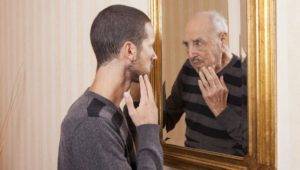I live between the Holy and Profane
a moving song that describes the space we find ourselves A song that helps us understand the need for the sacred protective space that is Shabbat.
Shabbat Shalom.
(The English lyrics are below the song. )
I live between the Holy and Profane
a moving song that describes the space we find ourselves A song that helps us understand the need for the sacred protective space that is Shabbat.
Shabbat Shalom.
(The English lyrics are below the song. )
In a time of Pandemic, how do we surround ourselves with guests and Lashev BaSukkah?
A couple of minutes of some parody to wish all Shabbat Shalom and Chag Sameach this Erev Sukkot.
Enjoy
It is different to be sure, but our High Holidays experiences can be moving and meaningful
Everything is turned upside down due to the pandemic. Our High Holidays are no different.
What do you need to make this a meaningful experience for you?
L’Shana Tova uMetuka
By the Rivers of Babylon sung by Rocky Dawuni – Playing for Change
This Shabbat, May the words of my mouth and the meditations of my heart be acceptable to You.
Shabbat Shalom
 Like so many, I am frustrated. In large measure, I am frustrated with myself. It is me who needs the work. Privilege, whiteness, racist and similar words or phrases can be jingoistic, masquerading in a cloak of empathy. They really have no weight until I confront who I am with honesty and vulnerability. I have struggled with what I can only describe as our own hypocrisy; far too often we preach and we teach, but we do not fully live the Jewish values we espouse. How could this not be at the forefront of everything I do for as long as I have been doing it? What took me so long, why now? I think back at those interesting words at the beginning of Exodus: And God heard their cry and remembered the Covenant God made. What took God so long? There were 400 years of suffering and oppression. What took God so long?
Like so many, I am frustrated. In large measure, I am frustrated with myself. It is me who needs the work. Privilege, whiteness, racist and similar words or phrases can be jingoistic, masquerading in a cloak of empathy. They really have no weight until I confront who I am with honesty and vulnerability. I have struggled with what I can only describe as our own hypocrisy; far too often we preach and we teach, but we do not fully live the Jewish values we espouse. How could this not be at the forefront of everything I do for as long as I have been doing it? What took me so long, why now? I think back at those interesting words at the beginning of Exodus: And God heard their cry and remembered the Covenant God made. What took God so long? There were 400 years of suffering and oppression. What took God so long?
It does not assuage my guilt to take solace in the human time it took God. Despite knowing I cannot change the past, I struggle with how I affect the future. This only adds to the frustration of knowing I have not done enough to bring us farther along. And do I really believe in what I proclaim?
Do I have the fortitude and courage to look deep within and grapple with who I am and what I must do to change? Only then will I be whole enough to join in the battle that our society and humanity as a whole must wage to create the world I profess to believe in. Will I cross over or find contentment on this side in my narrow but for the most part comfortable space.
We have had opportunities before. We have moved forward, slowly, haltingly, stumbling often one step forward and two steps back. In actuality, we have lived with the opportunities to make change continuously. What makes this moment different? Will I be like Nachshon, wading deliberately into the unknown Sea of Reeds or be one of those longing for the land of Goshen, that narrow harsh place, whose evils are known but tempered by our thoughts of powerlessness?
Prescriptions are being bandied about. Some might be curative and others little more than a bandage. Everywhere there are now lists of things proposing changes ostensibly serving to right society’s wrongs. How could these lists be created so quickly? Seeing these in the immediate aftermath of George Floyd’s murder makes me wonder if the answers been known all along. This would imply either the problem is not that complicated or we did not have the strength to enact these prescriptions. We need to ask ourselves which it is. Or is the problem so deep and thorny as to render it all but impossible to unravel? And we have left the status quo because we are overwhelmed at the enormity of the issue. At this moment in time are we willing to find out? Will this time different from all of the other times? Am I up to the challenge?
The whole world is a narrow bridge, but do not be afraid; you are not alone.
These are the immortal words of Reb Nachman of Bratslav. Rabbi Yosef Goldman put these words to new music creating an inspiring message, a beautiful way to welcome Shabbat.
Shabbat Shalom
To welcome Shabbat I share this niggun by Yosef Guttman Levitt.
The wordless melody of the niggun can help us capture the mood, connection, and change that Kabbalat Shabbat ushers in.
Shabbat Shalom